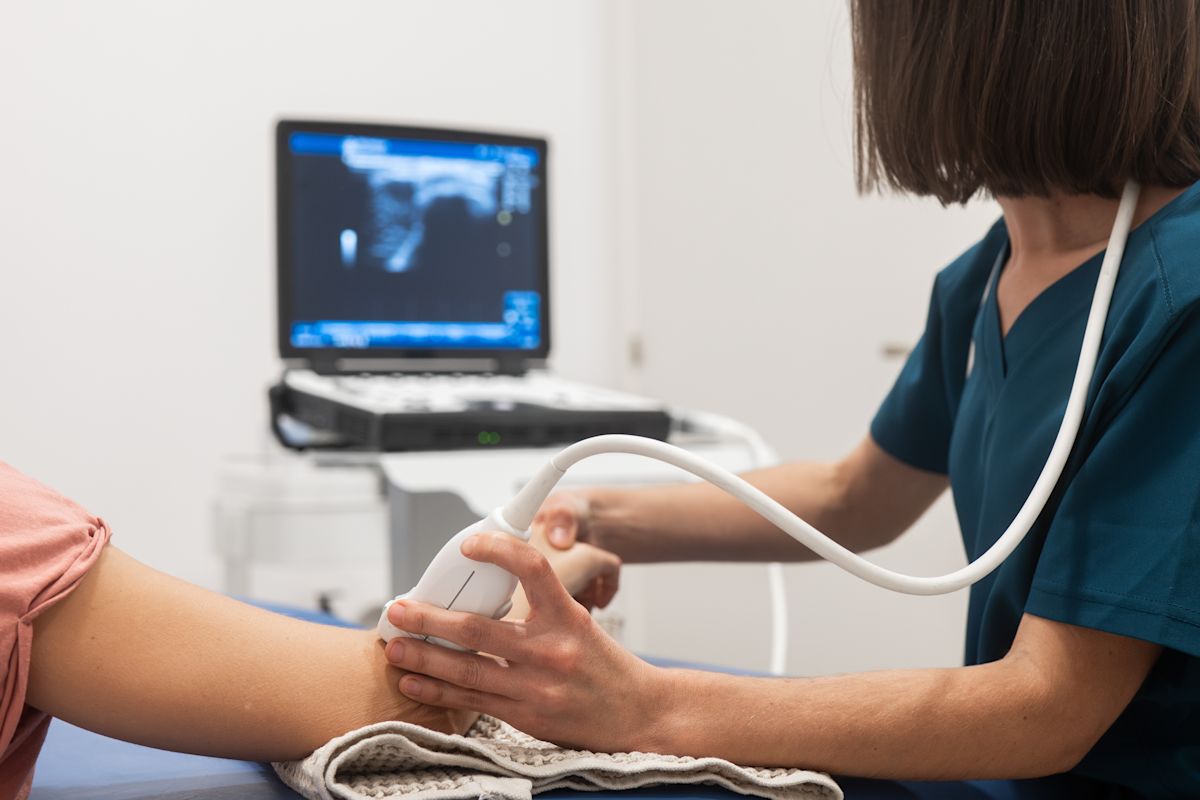
Dreaming of a health care career? Let's get you started
Discussed in this article
- First step: Volunteering and entry-level jobs
- Clinical health care careers
- Doctors
- Nurses
- Medical technicians
- Essential skills for clinical roles
- Clinical expertise
- Communication skills
- Critical thinking and problem-solving
- Health care administrators
- Education requirements
- Essential skills for administrative roles
- Remote health care jobs
- Telehealth coordinator
- IT support specialist
- Telehealth trainer/educator
- Essential skills for telehealth roles
- Make your move in health care
If you're drawn to the idea of helping others, fascinated by science and medicine, and looking for a stable and rewarding career, then health care might just be the perfect fit for you. With a growing demand for health care professionals, there are plenty of opportunities to make a positive impact on people's lives.
First step: Volunteering and entry-level jobs
Before diving headfirst into a health care degree, it's a great idea to get your feet wet with some volunteer work or an entry-level job in the field. This will give you a firsthand look at what health care is really like, and you might even discover a specific area that you're particularly passionate about. Plus, building connections with health care professionals can be a huge advantage when applying for higher-level positions.
Browse health care jobs on KSL Jobs
Clinical health care careers
Entering the world of clinical health care requires a significant investment in education, but you also need to master the skills that allow you to provide excellent patient care. Here’s a breakdown of the key educational requirements and skills needed to succeed in clinical roles.

Be ready for lots of clinical hours.
Doctors
Becoming a doctor is a long and demanding journey, but it's also incredibly rewarding. You'll need to complete a medical degree (MD or DO), undergo a residency program in your chosen specialty and earn board certification. The competition for medical school admission is tough and tuition costs can be high, but the trade-off is that doctors are often well compensated and highly respected.
Nurses
Nurses typically need either an associate degree in nursing or a bachelor’s degreein nursing, both of which prepare you to take the National Council Licensure Examination.. After passing this exam, you become a registered nurse. Nurses looking to advance their careers may pursue a master’s or doctorate degree in nursing, which qualifies them for advanced roles such as nurse practitioner or nurse anesthetist.
Medical technicians
Medical technicians usually require an associate degree in a specialized area such as clinical laboratory science or radiologic technology. They must also obtain certification from professional organizations, namely the American Society for Clinical Pathology or the American Registry of Radiologic Technologists. State licensing requirements vary, but most technicians will need to meet certain criteria to practice legally. This role focuses heavily on mastering diagnostic tools, running tests and providing vital support to doctors and nurses.

Licensing will vary depending on the state you live in.
Essential skills for clinical roles
In addition to meeting educational requirements, clinical health care workers need to develop a range of practical skills to succeed in their roles.
Clinical expertise
For doctors, nurses and medical technicians alike, having a strong command of medical knowledge and procedures is crucial. Doctors must diagnose and treat a wide variety of conditions, while nurses must administer medications, perform assessments and provide emergency care. Medical technicians must excel at operating diagnostic equipment and conducting lab tests with precision.
Communication skills
Compassionate, clear communication is key in health care. Whether explaining complex medical conditions to patients or coordinating with other health care professionals, effective communication ensures that patients receive cohesive and thoughtful care.
Critical thinking and problem-solving
The ability to think critically and solve problems on the spot is vital. Health care professionals frequently face high-pressure situations that require quick and informed decisions, such as diagnosing rare conditions or responding to sudden changes in a patient's health.
Browse medical technician jobs on KSL Jobs
Health care administrators
While doctors, nurses and technicians provide direct patient care, health care administrators ensure that hospitals, clinics and other facilities run smoothly. Without strong leadership and organizational planning, health care facilities wouldn’t be able to maintain the quality care that patients deserve. Here’s what you need to know if you’re considering an administration health care job.

The health care industry needs someone to keep things on track.
Education requirements
Health care administrators generally need at least a bachelor's degree in health care administration, public health or business administration. Many professionals in this field go on to earn a master’s in health care administration, which can significantly boost career prospects and prepare you for leadership roles. Certifications such as certified medical manager or fellow of the American College of Health care executives can also enhance your credentials and demonstrate a commitment to the field.
Essential skills for administrative roles
Leadership: Managing health care teams requires strong leadership skills. Health care administrators need to be able to lead with empathy while ensuring that operations remain efficient and staff are held accountable.
Financial management: Understanding the business side of health care is crucial for administrators. You’ll need to be adept at managing budgets, tracking revenue and controlling costs while still prioritizing quality care for patients.
Organizational and strategic planning: Health care administrators must think long-term. From staffing needs to facility improvements, you'll need to anticipate challenges and develop strategies for growth and sustainability.
Browse administrative health care jobs on KSL Jobs
Remote health care jobs
With the rise of telehealth, the health care landscape is evolving. Remote health care jobs allow patients to access care from the comfort of their homes, and it has created new opportunities for both clinical and non-clinical workers. While doctors, nurses and medical technicians play key roles in telehealth operations, other positions such as telehealth coordinators, IT support specialists and telehealth trainers/educators are also critical to ensuring the success of remote care. Here’s a breakdown of the key educational requirements and skills needed to succeed in telehealth roles.
Telehealth coordinator
This role involves managing the logistics of telehealth services, such as scheduling appointments and coordinating with health care providers. Typically, a bachelor’s degree in health care administration, nursing or health information management is needed, although some positions may accept an associate degree with relevant experience. Certifications such as certified telehealth coordinator are a plus.
IT support specialist
Responsible for ensuring the smooth operation of telehealth platforms, IT specialists need at least an associate degree in information technology, computer science or a related field. Some positions may prefer a bachelor’s degree. Certifications like compTIA A+ and network+ are beneficial for this role.
Telehealth trainer/educator
This role focuses on training health care providers to use telehealth technology effectively. A bachelor’s degree in health care, education or a related field is typically required. Certifications such as certified telehealth educator can help you stand out.
Essential skills for telehealth roles
Technical proficiency: Telehealth workers must be comfortable with health care technology and telemedicine platforms. Whether you're troubleshooting issues or training others, understanding the technical side of telehealth is crucial.
Communication: Whether you're providing tech support, coordinating care or educating staff, strong communication skills are essential for translating complex information and ensuring patient satisfaction.
Problem-solving and adaptability: Telehealth requires quick thinking to solve technical issues or adapt to new systems. Flexibility and the ability to troubleshoot on the fly are key in this ever-evolving field.
Make your move in health care
The right blend of education and essential skills will guide you on your path to a rewarding health care career. Whether you're aiming for a clinical role, an administrative health care job or a remote health care job, the right preparation is key to your success.
Health care is a dynamic field with endless opportunities for growth. Start by investing in the education and certifications that align with your career goals, and focus on developing the practical skills that will make you stand out. You’ve got this! And when you're ready, KSL Jobs is here to help you explore local opportunities.
Explore health care job opportunities today on KSL Jobs!


